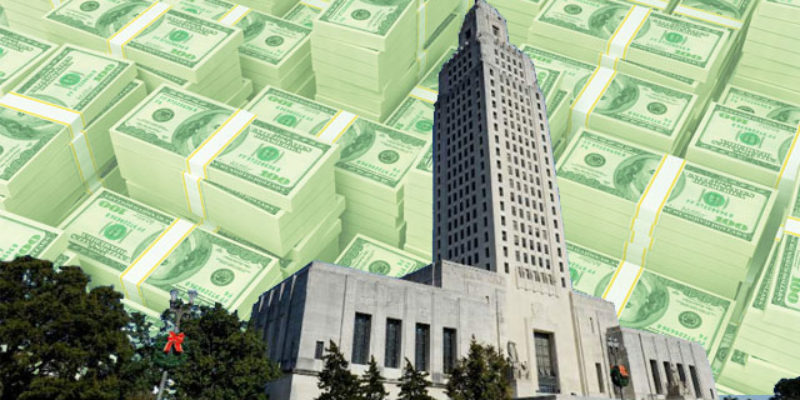The Governor’s number one goal for this session is “tax reform.” I agree that it is a long overdue concept. Where we differ is in definition.
It would seem by his approach that his focus is on reform of the revenue structure only, an approach aimed at just the creation of more funds to spend on current government practices but with no emphasis on changing government to make it work better. His approach presupposes that we limit the discussion to the revenue side without addressing the expense side of state government’s income statement.
Just for the record let me state very clearly a few of many salient points in my overall philosophy of state government spending and tax collection. These must be addressed concurrently with revenue changes if we are to have any true “reform”…
First, the state should focus on spending for state priorities and stop the really bad practice of funding local governments. In order to have effective local government we must stop insulating local politicians by literally sending billions of dollars to local governments for their use. The practice today is that local jurisdictions of all types persuade the state to transfer massive sums to them and in doing so they obviate the need to go their own constituents to justify local revenues for their duties and functions by demonstrating their efficiency and efficacy. In continuing this practice we do great harm to democratic principles by breaking down the local accountability of the voters.
The state government’s focus must be on funding government and infrastructure that affects the state as a whole; local government must focus on funding its areas of responsibilities.
Second, the state should get out of its limitation of local governments’ ability to raise local revenues. If we are to shift spending to the local governments, we must not preclude them from raising all the funds that they need. If they want to raise local taxes, local politicians will be at the mercy of local voters and they will have to be able to justify their expenditures.
Third, by the constitution local governments are all sub-divisions of state government; the state must hold them accountable for their actions, efficiency, and efficacy. In the past this has been done surreptitiously through state government control of their taxing authority and their supply of state funds. This practice has resulted in shortfalls in state funds, especially capital outlay funds, and ends up promoting mediocre local government practices and people.
Fourth, I am convinced that there are areas of intersection of state and local government duties that are far better performed in the macro scale of state government rather than the micro scale of local government. Sales tax, a resource of both areas of government, should be collected at the state level. This will make a much more business friendly approach and bring efficiencies to the system that should result in more money available to local government. Inventory tax and rebates were developed to generate more economic activity but have devolved into a revenue source for a handful of local governments to the detriment of the good of all through a good business climate. Inventory taxes need to go.
Finally, tax incentives and statutorily and constitutionally dedicated funds must be in effect periodically “sunsetted.” They must be reviewed on a defined schedule to determine if they are fulfilling their intended purpose and then, only if they are fulfilling their intent, should they be reauthorized or adjusted.
Sadly, though all of these fundamental spending reforms were once on the table for our current tax reform discussions, the Administration has caved in to political pressure and these much needed reforms have been dropped from the debate. The result is that, because true reform has been shuttled aside, the upcoming session will not be about tax reform, it will be about taxes.
My position is that I do not believe that pouring good money after bad is a solution to our fundamental PROBLEM. That problem is how we create good jobs for our people so that they can break two evil cycles; the cycle of poverty and its associated complications and the cycle of government dependency.
Tax reform without “reform” is just raising taxes to keep the status quo, ineffective and inefficient government. It does nothing to enhance the lives of our citizens nor to bring our state into the 21st century.
Advertisement
Advertisement

